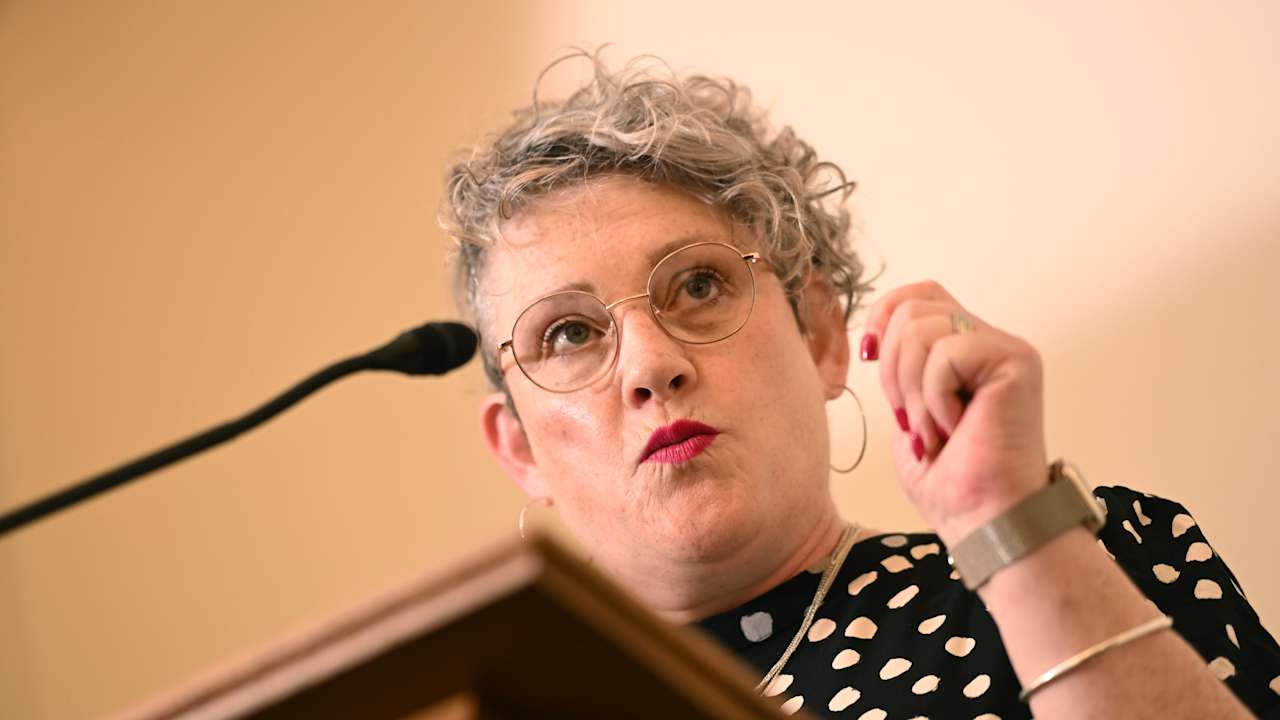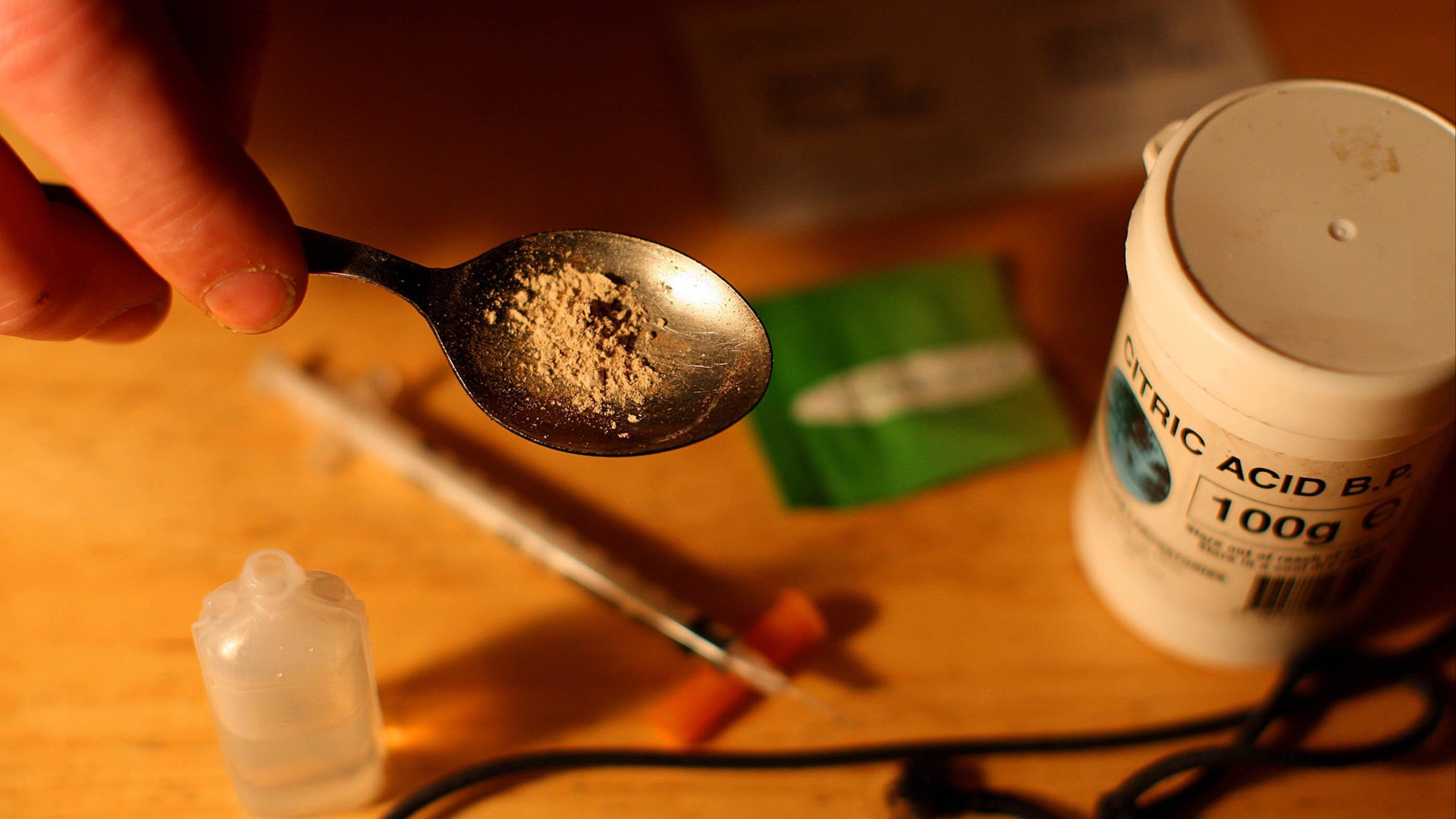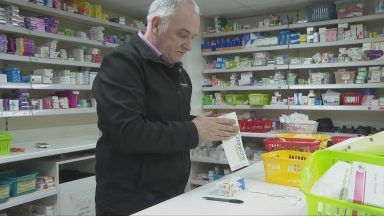Deaths linked to powerful synthetic opioids have almost quadrupled in England and Wales in a year, while overall drug-related fatalities have reached a record high, official figures show.
Data from the Office for National Statistics (ONS) reveals that fatalities involving nitazenes, a powerful class of synthetic opioids, rose from 52 in 2023 to 195 in 2024.
The National Crime Agency has linked nitazenes to 278 deaths across the UK.
Nitazenes are powerful synthetic opioids, man-made drugs that act on the same brain receptors as natural opioids from the opium poppy.
They are usually sold as a white or yellow-brown powder, or in crystalline form, and have also been found mixed with heroin, ketamine, and synthetic cannabinoids.
Some nitazenes are very potent, potentially up to 500 times stronger than heroin, and are increasingly found in counterfeit prescription medicine.
Meanwhile, drug poisoning deaths in England and Wales have hit a record high, with 5,565 fatalities registered last year, a 2.1% rise on 2023, double the number recorded in 2012.
This marks the fourteenth consecutive annual increase.
The ONS has warned that figures for drug misuse and specific substances are likely undercounts, as around a fifth of death registrations do not record which drugs were involved.
It also noted that due to reporting delays, roughly half of the deaths registered in 2024 occurred in previous years.
Research from King’s College London suggests the true scale of the crisis may be far worse, estimating that opioid deaths between 2011 and 2022 were 55% higher than official figures.
David Mais, from the ONS, said: “We are seeing a small but continued increase in the rate of deaths relating to drug poisoning, with opioids and opiates, such as heroin and morphine, the drugs most commonly mentioned on death registrations.
“However, in a fifth of cases, no information is provided about the specific drug or drugs involved. The more information coroners can provide on registrations, the more detailed our analysis can be of the substances most associated with drug poisoning deaths.”
The Turning Point charity, which helps people with substance abuse problems, called for increased availability of medication to be given in the event of opioid overdoses.
Chief operating officer Clare Taylor said: “Lab-produced opioids pose a significant risk to life due to their potency and this is reflected in the fact that deaths related to nitazenes have increased four-fold compared to the previous year.
“If Government is serious about tackling regional health inequalities, then proper investment in drug and alcohol treatment is needed.”
Cocaine-related deaths also rose, up 14.4% on the previous year, with 1,279 fatalities registered in 2024.
The ONS said cocaine has remained the second-most used drug after cannabis in England and Wales over the past decade.
More than three-quarters of cocaine-linked deaths in 2024 were among men, with 982 male deaths compared with 297 female.
Change Grow Live, a charity that provides drug support services around the UK, warned that without combating issues in the wider community, drug-related fatalities will continue to rise.
Chief executive Mark Moody told ITV News: “Drug use doesn’t happen in isolation. It’s linked to housing instability, poverty, poor mental health, and an overwhelmed justice system.
“Tackling these broader issues will take time, but without urgent action now, drug-related deaths will continue on the same trajectory, with more lives lost, more families shattered, and more communities left behind.”
Friday’s figures come as the government launched a new campaign to warn young people about the dangers of ketamine and counterfeit medicines, backed by a £310 million investment in drug treatment services.

However, Release, the UK’s leading centre on drugs and drug law, criticised the campaign as “window-dressing,” accusing ministers of sticking to “outdated” drugs policies that criminalise rather than support people in need of help.
Niamh Eastwood, executive director of Release, said: “These figures show a public health crisis that is deepening year after year, with no action.
“The evidence on how to save lives is already clear, yet the government continues to rely on outdated ‘war on drugs’ policies that criminalise people – pushing them away from safety, care, and support.”
A Department of Health and Social Care spokesperson said: “These figures provide a stark reminder of the dangers of drugs and the associated tragic loss of life.
“This government is committed to cutting the number of drug-related deaths through treatment, advice and support and focusing on those deprived areas suffering most.
“This week we launched a new campaign to alert young people to the dangers of ketamine, counterfeit medicines and contaminated vapes.”
Follow STV News on WhatsApp
Scan the QR code on your mobile device for all the latest news from around the country






























